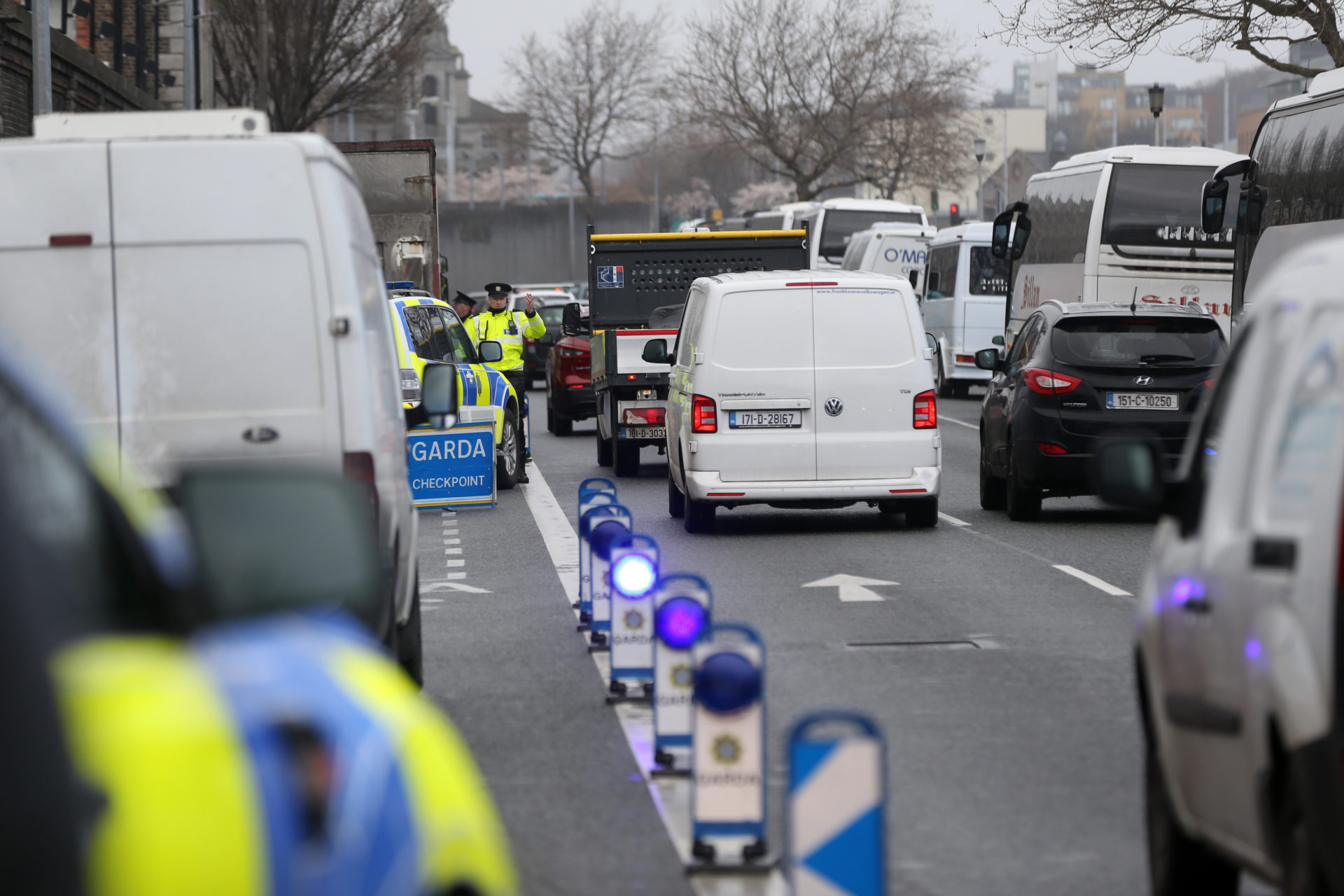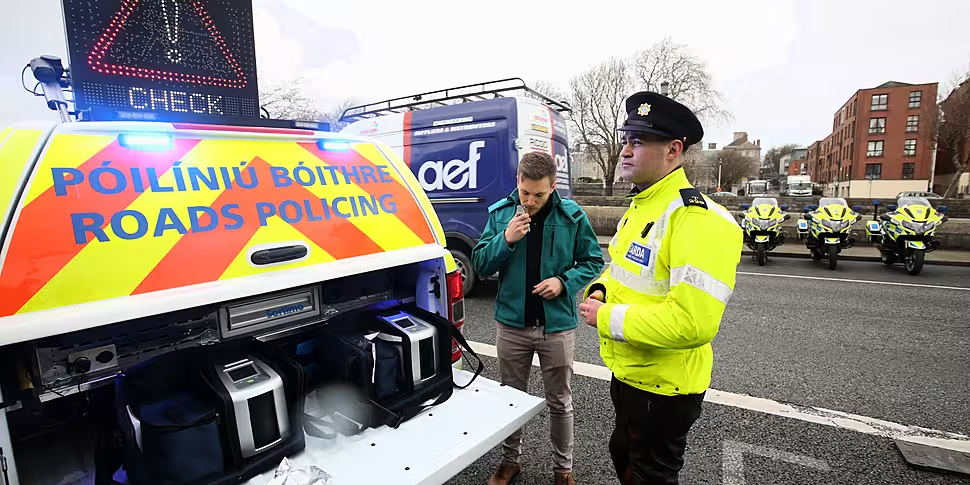The sharp fall in the number of alcohol breath tests carried out at Garda checkpoints this year is “shocking but not surprising”.
New figures show the number of roadside breath tests carried out by Gardaí has dropped by more than half since before the pandemic.
Meanwhile, the number of Gardaí assigned to roads policing is at its lowest level since 2017.
According to the alcohol breath test figures, provided by Justice Minister Helen McEntee on foot of a Parliamentary Question from Green Party TD Patrick Costello, Gardaí carried out 88,734 drink-driving breath tests at checkpoints to the end of July this year.
It means Gardaí are on course to carry out just over 150,000 by the end of the year – less than half the 314,471 they carried out in 2018 and 316,075 they carried out in 2019.
 Gardaí carrying out breath and drug roadside tests, 14-03-2019. Image: Sam Boal/RollingNews
Gardaí carrying out breath and drug roadside tests, 14-03-2019. Image: Sam Boal/RollingNewsThe fall comes in a year that has seen a worrying rise in road deaths – with the five people who were killed on Irish roads last weekend taking the overall death toll this year to 149.
On The Pat Kenny Show this morning, CompleteCar.ie Editor Shane O’Donoghue said the fall in breath testing is ‘shocking not surprising’.
“It's something we've discussed long and hard over the last year or two,” he said.
“You know, there seems to have been, instead of there being a change in the way things are in terms of increasing enforcement there seems to be a knee-jerk reaction to the horrific increase in deaths by saying, ‘Oh, let's do a blanket speed limit change,’ as if that will fix everything and that is clearly not the issue here.
“While speeding clearly does contribute to a lot of these accidents and a lot of crashes in general, it isn't the only thing happening.
“I've said for a long time, Garda enforcement is severely lacking and it's really interesting to see the figures now.”
Road deaths
He said the road death figures have increased significantly so far this year.
“It’s such a worrying number,” he said.
“It's 30 more than in the same period last year, which I believe is about a 26% increase in deaths so far this year and we're just about to head into the winter, which is theoretically the most dangerous time of year, where it's darker and bad weather etc.”
Fines
Separately, The Irish Times reports this morning that Gardaí are on course to hand out significantly fewer fixed charge notices (FCNs) for holding a mobile phone while driving this year than they did in 2019 and 2020.
Gardaí confirmed to the paper that the number of officers assigned to roads policy now stands at 659 nationally – down from 692 at the end of last year and at its lowest level since 2017.
In a statement, the force noted that road policing personnel would increase as Garda recruitment accelerates.
It also said the fall in mobile phone detections was linked to the rise in hands-free connectivity in cars, meaning fewer people need to hold a phone to use it while driving.
Recruitment and retention
Mr O’Donoghue said Gardaí are clearly facing a manpower issue as difficulties with recruitment and retention continue.
“Perhaps the job needs to be made more attractive in some way,” he said.
“I know every industry in every sector of our society wants more money now but perhaps the Gardaí need to be paid more, or the conditions need to be changed to attract more people to it.
“Something needs to be done clearly. If the Gardaí cannot recruit enough people and the knock-on effect is death on the road, then that's a no-brainer.
“You know, even putting aside the devastation to families, you know that this is causing, a road death costs the economy millions actually, so there's a justification there in pure financial terms to offset the books, to put money into policing in the first place and then reduce this devastation on the roads.”
Main image shows Gardaí carrying out breath and drug roadside tests with a ‘driver’ portrayed by actor Kevin D’Arcy, 14-03-2019. Image: Sam Boal/RollingNews









